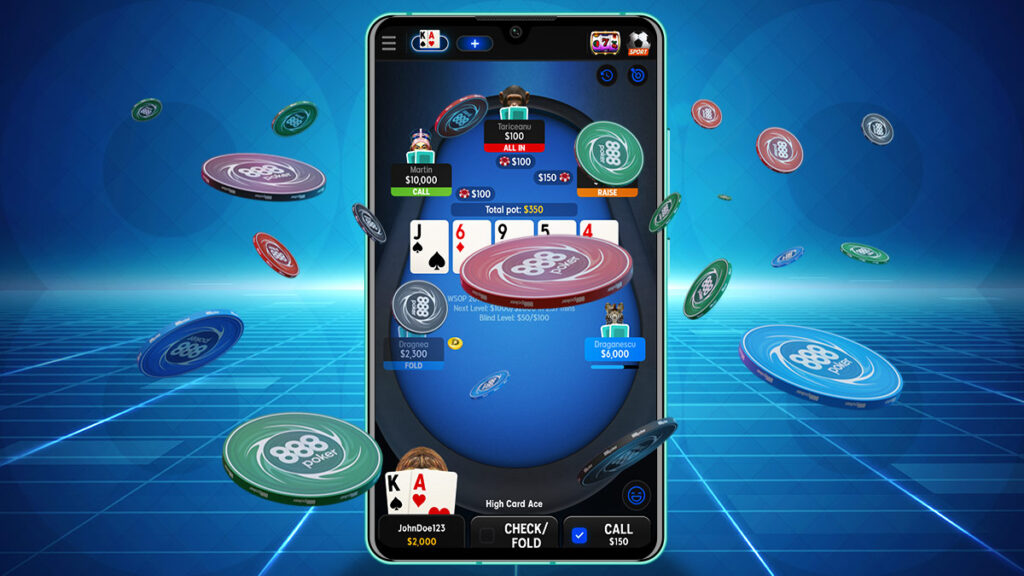Welcome to the world of poker game development! Are you eager to embark on the journey of creating your very own poker game? Well, you’ve come to the right place. This introductory guide is designed especially for beginners like you, offering a comprehensive roadmap to crafting a successful and captivating poker experience.
Poker game development encompasses the intricate process of bringing the timeless game of poker to digital platforms such as computers, consoles, and mobile devices. While the path may be challenging, the rewards of creating an engaging poker game are immeasurable.
As a game of skill, strategy, and chance, poker has enthralled millions across the globe for centuries – and with technological advancements, the game has seamlessly transitioned from traditional brick-and-mortar casinos to the digital landscape through poker game development. Get ready!
Read as well: 2023’s top game genres – a journey through pixels and thrills

Understanding the dynamics of poker game development
Crafting a successful poker game demands a delicate fusion of artistic innovation, cutting-edge technology, and a deep understanding of user engagement. Developers embark on a journey to encapsulate the essence of live poker, harnessing the full potential of contemporary gaming platforms.
Each facet of development, from the creation of intuitive user interfaces to the integration of intricate algorithms, plays a pivotal role in sculpting an immersive and captivating gaming environment.
This intricate process requires meticulous attention to detail and a relentless pursuit of excellence to ensure that every player’s experience transcends mere entertainment to become an unforgettable adventure in the world of poker.
The 11 basic steps of poker game development
Understanding poker game development involves the creation of digital versions of poker games that, ideally, can be played on various platforms. The process entails several key steps:
- Concept and Design: Begin by conceptualizing the poker game, selecting the poker variant, and designing the game rules. Create a game design document outlining gameplay mechanics, user interface (UI), and visual style.
- Technology Stack: Choose the appropriate technology stack, including programming languages, game engines, and development tools. Ensure compatibility with multiple platforms, including mobile devices and desktops.
- Game Mechanics: Develop the core game mechanics, including card dealing, betting, and hand evaluation. Implement AI algorithms for computer-controlled opponents in single-player modes.
- Graphics and Animation: Design game assets, including card graphics, player avatars, and table layouts. Animate card shuffling, dealing, and player actions to enhance the visual appeal.
- Multiplayer Functionality: Implement multiplayer features, allowing players to join online tables and compete with others. Ensure secure server-side infrastructure for gameplay and data management.
- User Interface (UI): Design an intuitive and visually appealing UI with features like betting controls, chat, and player statistics. Optimize UI for various screen sizes and resolutions.
- Monetization Strategies: Plan how the game will generate revenue, such as through in-game purchases, virtual currency, or advertisements. Consider offering premium features or subscription plans for monetization.
- Testing and Quality Assurance: Conduct extensive testing to identify and fix bugs, glitches, and gameplay issues. Optimize game performance for smooth gameplay across devices.
- Regulatory Compliance: Ensure compliance with relevant gambling regulations and age restrictions, especially if real money gambling is involved.
- Launch and Marketing: Launch the poker game on app stores and platforms while adhering to store guidelines. Develop a marketing strategy to promote the game, including social media marketing and partnerships.
- Updates and Support: Continuously update the game with new features, bug fixes, and security enhancements.
As we will see in the next section, the possibilities for innovation in poker game development are limitless. From seamless cross-platform integration to immersive social features, developers have the opportunity to redefine the boundaries of interactive entertainment.
A look at poker games through the years
The 1990s stands out as a decade of profound technological transformation, with the rise of the Internet reshaping various aspects of society, including gaming. One of the most significant developments during this time was the emergence of online poker, which broke barriers of geography and time zones, allowing players worldwide to compete against each other.

In 1998, Planet Poker launched the first real-money online poker game, pioneering a revolution in the gaming world. Despite facing challenges such as slow internet speeds and basic graphics, Planet Poker’s venture marked the dawn of a new era filled with opportunities and competition.
As the world entered the new millennium, broadband technology took center stage, drastically improving internet speeds and bolstering connectivity. Simultaneously, advancements in encryption techniques boosted players’ confidence in the security of their financial transactions.
PokerStars, a relatively obscure platform at the time, introduced cutting-edge software that enhanced the gaming experience. They initiated the World Championship of Online Poker (WCOOP) in 2002, mirroring the prestigious World Series of Poker (WSOP) in an online format. In 2003, Chris Moneymaker’s historic victory in the WSOP Main Event, having earned his spot through PokerStars, further catapulted online poker into the mainstream.
The mid-2000s witnessed the introduction of multi-tabling, enabling players to engage in multiple games simultaneously across different virtual rooms. This innovation heightened the intensity and complexity of online poker sessions.
Two pivotal technological advancements, Random Number Generators (RNG) and Heads-Up Displays (HUD), played significant roles in shaping modern online poker. RNGs ensured the randomness of dealt cards, maintaining fairness, while HUDs provided real-time opponent statistics, revolutionizing strategic gameplay.
The advent of smartphones revolutionized online poker, making the game more accessible than ever. Leading platforms developed mobile apps, allowing players to participate in games anytime, anywhere, breaking free from the confines of desktop computers.
The integration of AI into poker, starting around 2015, brought about profound changes. Carnegie Mellon University’s AI program, Libratus, demonstrated remarkable prowess by defeating four professional poker players in a 20-day marathon in 2017. While the use of AI in real online poker games is regulated, its impact on strategy development is undeniable. AI bots enable players to refine their skills and gain a competitive edge in real games.
Today, online poker stands as a thriving and expanding industry enjoyed by millions worldwide. The introduction of live dealer games and virtual reality poker represents a seamless fusion of technology and gaming, transforming the traditional casino experience into an immersive and accessible endeavor.
From Planet Poker’s pioneering platform to the rise of AI-enhanced strategies, the evolution of online poker reflects the ongoing march of technological progress. This evolution has not only democratized access to the game but has also added layers of strategy, complexity, and excitement, reshaping the landscape of poker in ways unimaginable in the past.

Shaping the future of poker game development
As developers persist in pushing the boundaries of innovation, the horizon remains boundless with opportunities to redefine the gaming experience and introduce the thrill of poker to fresh audiences worldwide.
Embrace the challenge, channel your creativity, and join us in shaping the future of poker game development. The deck is yours to shuffle, and the possibilities are limitless with Main Leaf, a premier game development studio based in Brazil since 2012. Uncover how our dedicated team transforms concepts into immersive gaming experiences, blending innovation and adaptability into every project!
If you’re intrigued by the evolving world of poker game development and wish to explore our innovative services further, click on the button below to embark on a journey of creativity and discovery – let’s shape the future of interactive entertainment together!

